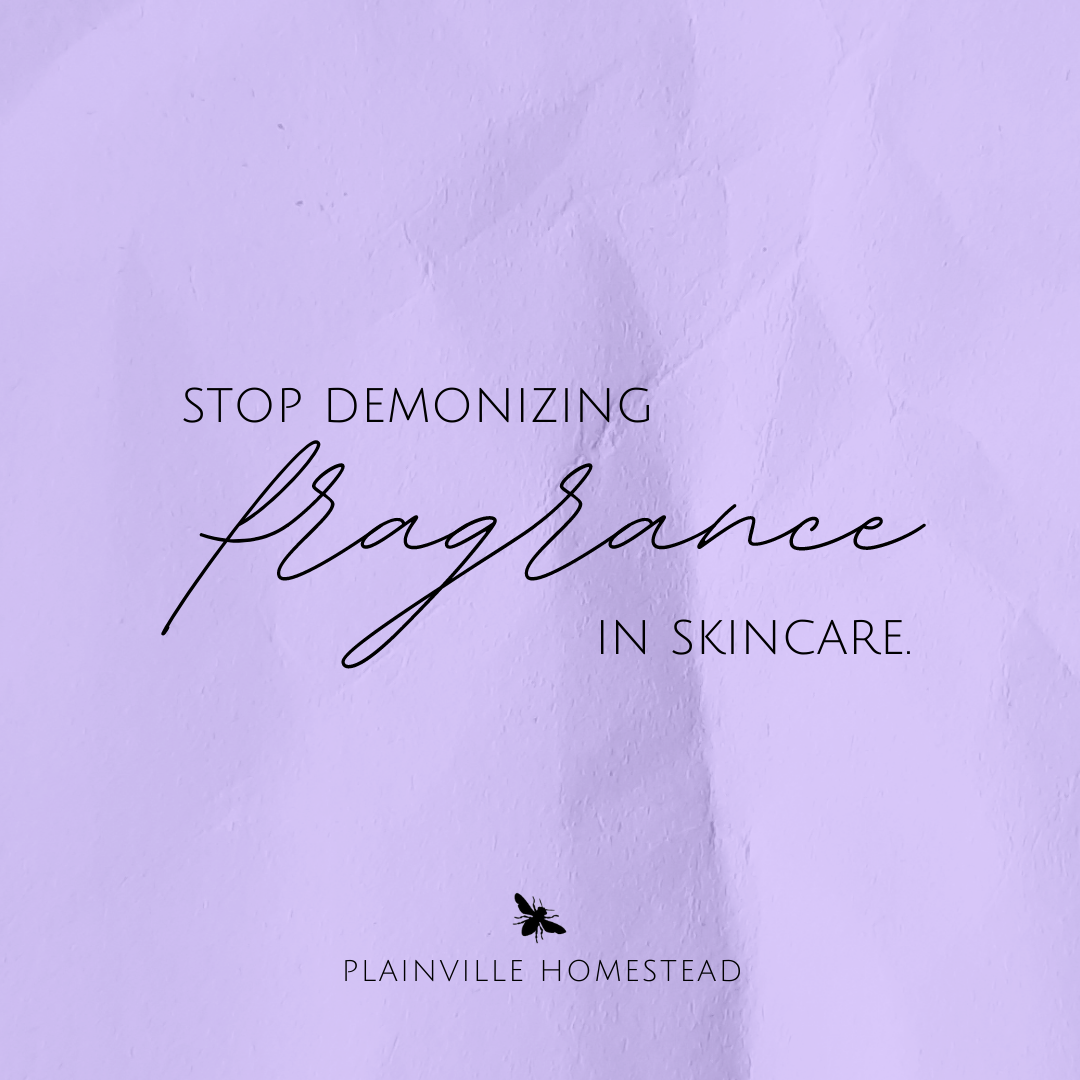Can we end the war on fragrance in skincare?
The ‘clean beauty’ movement has it OUT for fragrance in skincare, which, you guessed it, is another fear mongering tactic employed to deceive you. I don’t know when clean beauty turned into an anti-science movement, but it’s wrought with fallacy.
Back in 2007, fragrance was named as the Allergen of the Year by the American Contact Dermatitis Society. While it IS accurate that it can be sensitizing and cause skin reactions, fragrance as a general term is a large category comprised of many different ingredients and molecules. Often ‘fragrance’ used in a product list is a blend of many different types of ingredients, making it hard to decipher exactly what someone may be allergic to.

There has been a ‘free-from’ trend happening, which creates this notion that certain ingredients must be dangerous if folks are avoiding them. There are strict regulations around ingredients, fragrance being among those. (As a side note, while areas like the UK and EU technically have a longer list of banned ingredients than in the US, a large majority of those banned ingredients are not used here in the US as they’re typically not found in cosmetics anyway.)
A single ingredient in skincare should not be labeled as good or bad. Ingredients are complex. Formulation, concentration, function, and delivery are all part of a cosmetic developmental process. There are also a lot of factors that can contribute to the skin reacting negatively to a product that has nothing to with fragrance: concentration, duration applied to skin, condition of skin barrier, and frequency of use.
If you have sensitive/compromised skin or a damaged skin barrier, then, sure, it may make sense to avoid products with fragrance. But this is a very small group of people. One consideration for the use of fragrant compounds is that some base formulas do not smell particularly pleasant, and you would be hard pressed to use a product again that smells like crayons. Fragrance can also be part of a sensorial experience, emulating the feeling of being in a spa or treating yourself to self care and mindfulness. A pleasant aroma can invoke feelings of happiness, tranquility, or confidence, and you are more likely to repurchase.
While you may read or hear about dermatologists consistently recommending products without fragrance, bear in mind that they are also dealing with a large number clients coming in with skin issues and are seeing the worst of the worst; this is not the majority of people.
Let's also clarify what "fragrance-free" or "unscented" means when you see this claim on a product. Fragrance free simply means that compounds were not added to give the product an aroma, BUT they could have been added for a different purpose. Unscented only indicates the product itself does not have a scent. However, fragrant compounds may have been added to mask the base scent of the formula. So are those products actually fragrance free?
TL;DR: Fragrance is not evil.

